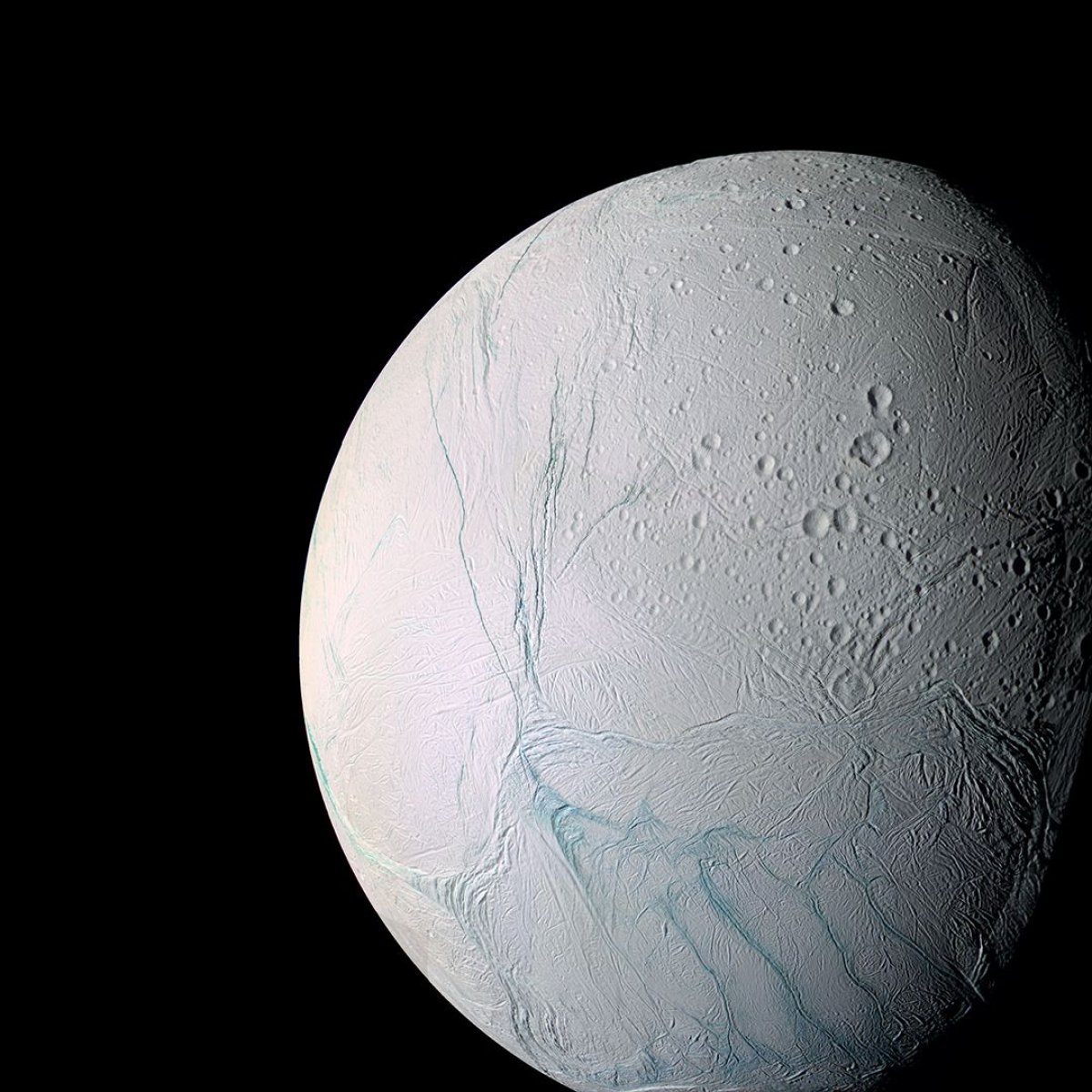Enceladus,Saturn's sixth largest moon, is increasingly being recognized by scientists as the most promising place in the Solar System to search for life.
The brilliant white moon, which is about the size of England, has a global ocean of salty, liquid water below its frozen surface that has existed for billions of years—plenty of time for life to emerge. Furthermore, the presence of hydrothermal activity and organic materials may provide the warmth and materials needed for organisms, as we understand them, to evolve.
Carolyn Porco, one of the world's foremost planetary scientists, is among those who thinks Enceladus should be our top priority in the search for extraterrestrial life. Speaking at the 2018 Breakthrough Discuss conference at Stanford University on Thursday, she outlined why Enceladus is so promising and how we could go about finding life there.
Porco has long been at the forefront of research into the moon. In the mid-2000s, for example, her team was responsible for sighting huge plumes of water vapor erupting from fractures on the surface of Enceladus' south polar region.
The plumes contain gases including hydrogen, methane and carbon dioxide, which indicated to scientists that they are originating from hydrothermal processes similar to those that occur at hot vents on the Earth's seabed. On Earth, these vents are a haven for microbial life.
Porco told the conference that the rate of heat energy emerging from the sea floor under the south polar terrain of Enceladus is comparable to that in the mid-Atlantic. "The cell concentration at hydrothermal zones at the bottom of the Enceladus ocean could be the same as that on Earth, at least in those regions that are anaerobic [free of oxygen]," she said.
Furthermore, "there's a process that happens on every natural body on the Earth called 'bubble scrubbing', whereby organic materials and organisms, which are very hydrophobic, attach to bubbles as they rise through the water column," she said. "At the surface the bubbles break, they release their spray and that's what we think we're seeing on Enceladus."
Because this process could potentially bring microorganisms to the surface, it could be exploited by any probe sent to detect life on the moon.
But what kind of spacecraft would be most effective at finding life on Enceladus? According to Porco, a roving vehicle would not be useful because of the moon's rocky terrain, which is filled with huge blocks of ice. There's also no atmosphere, so using a drone would not be possible.
However, even a stationary landing probe would suffice, according to Porco, if it was dropped in the right place.
"Why? Because on Enceladus, material [from the plumes] is going up and it's falling down," she said. "So, you can continuously collect material as it falls. Over the course of 100 Enceladus days you could collect, I think, a substantial number of cells on a target that's eight inches by eight inches."
Helpfully, the magnetic environment on Enceladus is relatively benign compared to other promising destinations in the search for life, such as Jupiter's moon Europa, Porco said.
"You wouldn't have to worry about having your spacecraft fried or organic material being destroyed by the magnetic environment. You could stay there for a very long time collecting material.

"And if you don't have a lander, multiple, slow fly throughs of the poles would do also," she noted.
In fact, NASA's Cassini probe—which Porco led the imaging team for—has already flown through Enceladus' plumes before it plunged to its fiery end last year, so we know this can be done.
What would it take to prove the existence of microbes on Enceladus? Alongside biochemical analysis, an image or video of organisms would be ideal, Porco said. She recommended that any mission to the moon should carry a microscope.
"That's not surprising coming from an imaging person but it's really true, seeing is believing."
Uncommon Knowledge
Newsweek is committed to challenging conventional wisdom and finding connections in the search for common ground.
Newsweek is committed to challenging conventional wisdom and finding connections in the search for common ground.
About the writer
Aristos is a Newsweek science reporter with the London, U.K., bureau. He reports on science and health topics, including; animal, ... Read more
To read how Newsweek uses AI as a newsroom tool, Click here.








